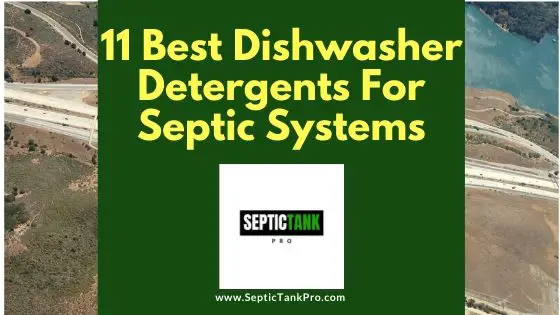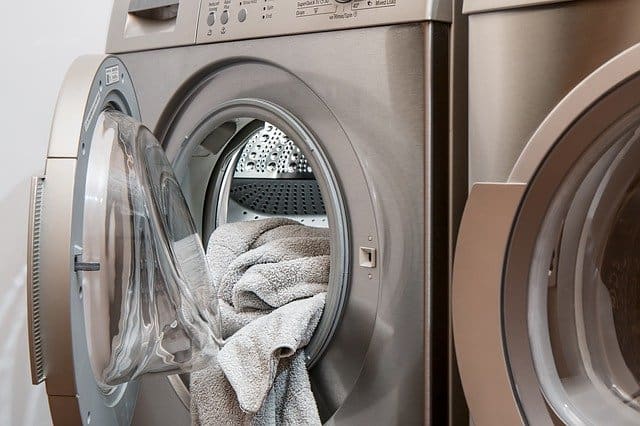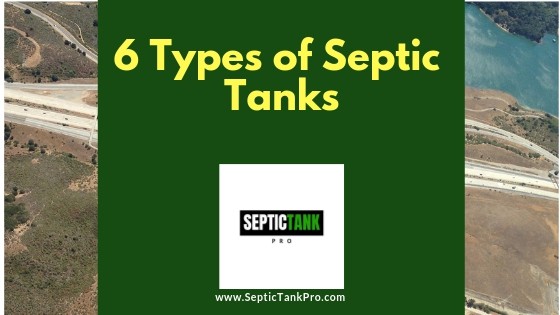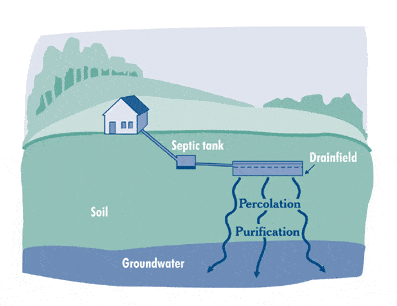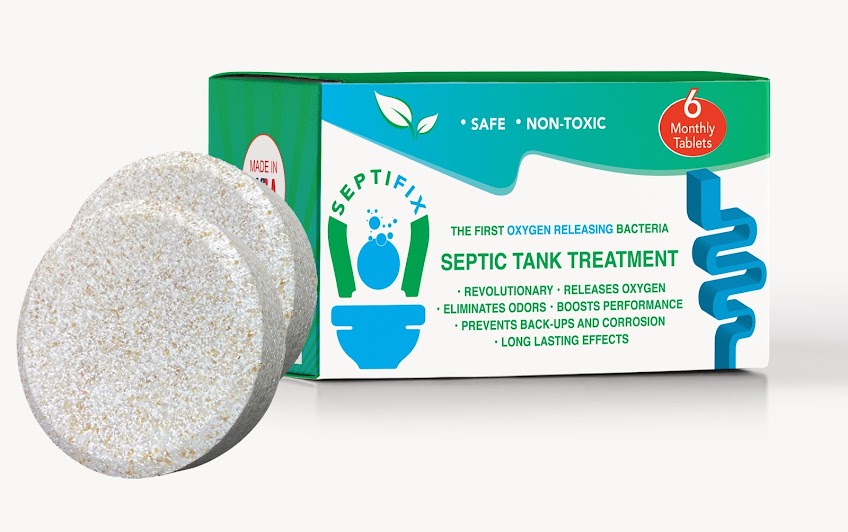Best Dishwasher Detergents For A Septic System
A good number of households have taken to relying on the advantages of dishwashing machines. Dishwashers work by heating water to 140º, thus are able to clean and sanitize dishes more effectively. Now, let’s face it: if you own a dishwasher and your home is connected to a public (municipal) sewer system, you likely don’t pay much attention to the products you use to wash your dishes with. You probably just go with your preferred brand or whatever is on sale in your favorite supermarket.
On the other hand, this is hardly the case if your house or business property relies on an on-site, dedicated septic system. In this case, you definitely need to carefully select your products, including the dishwasher detergent you use.
What are the best dishwasher detergents for septic systems? If you have a septic system working for your property, it is important that you use only septic-safe dishwasher detergents. Septic-safe dishwasher detergents are phosphate-free. This matters because phosphates can be harmful to the good bacteria and enzymes that are ideally flourishing inside your septic tank. These enzymes and bacteria are the ones responsible for decomposing the waste matter in the tank. Without them, septic tanks would fill up faster. Phosphates are non-organic chemicals derived from salts and phosphorous. When combined proportionately, they form an acid that is supposed to be helpful in cleaning dishes and removing grime. The downside, though, is that phosphates can kill off bacteria and enzymes.
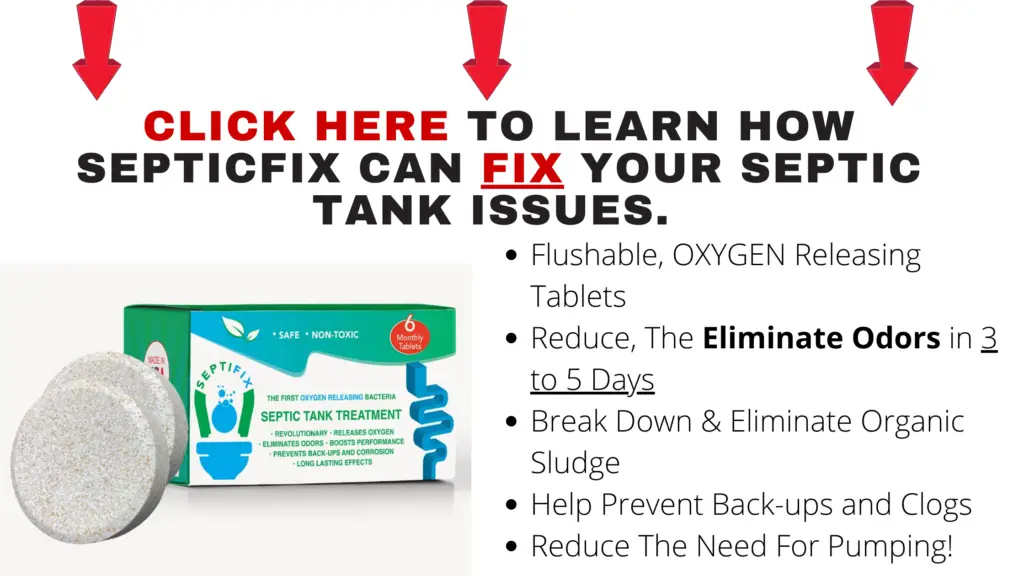
Typically, the volume of dishwasher detergent used in sinks and eventually entering the septic system is so low or has been diluted enough that it does not harm the septic tank bacteria. The baseline here is normal levels of residential dishwasher use. Dishwashers also rely on surfactants to clean them. Now, even if they don’t kill off the bacteria and enzymes in the septic tank and drainfield, surfactants, and phosphates that run through a dishwasher ultimately join ground and surface water, potentially contaminating them.
Using regular dish soap that creates too many suds could damage the machine. Dishwasher soap may cost more than standard detergent and some types can be harsher on the environment than others. And if you happen to be in an area with hard water and you want to avoid water spots on your glassware, you’ll need to add a rinsing agent to the machine, as well. Realize that what you use to operate your dishwasher are chemicals that you are introducing to your septic system, not to mention, the environment. With the help of other septic system experts, we compiled a list of best dishwasher detergents that are best for your septic system.
#1 Grab Green Natural Dishwasher Detergent Pods
- Contains 1 - 132 load pouch of Grab Green Natural Automatic Dishwashing Detergent Pods, Tangerine + Lemongrass.
- CONVENIENT, EASY TO USE VELCRO CLOSURE: No more hassling with frustrating zip closures.
- SPOT-FREE, BRILLIANT SHINE: Powerful Dishwasher Detergent in one pre-measured powder pod that easily tackles your toughest loads, WITHOUT harsh chemicals.
- SUPERIOR, RESPONSIBLY SOURCED INGREDIENTS + advanced green chemistry results in highly-effective cleaning products.
- SAFER FOR YOU, YOUR FAMILY & THE PLANET: Made without, phosphates, phthalates, chlorine, toxins, dyes or masking agents; PROUDLY: Cruelty-Free & made in the USA.
Prices pulled from the Amazon Product Advertising API on:
Product prices and availability are accurate as of the date/time indicated and are subject to change. Any price and availability information displayed on [relevant Amazon Site(s), as applicable] at the time of purchase will apply to the purchase of this product.
Grab Green Natural Automatic Dishwashing Detergent Pods works great with both standard dishwashers and HE dishwashers. More importantly, it is kind on septic systems, as it prevents build-ups or clogs within your system due to the fact that the formulation does not include added chemicals and preservatives. Grab Green is phosphate-free and dye-free. They don’t do any testing on animals either, making Grab Green cruelty-free.
PRO: There is a fragrance-free option, as well as tangerine with lemongrass, thyme with fig leaf, and red pear and magnolia – all enticing scents. Each of these variants is infused with essential oils. All aspects of these dish pods from Grab Green are natural, biodegradable, and completely eco-friendly.
CON: If the pods are left unused for a long time, they may start to harden. This can make them more difficult to dissolve in the dishwasher. Some users have found this to not be the best at getting off food residue that has been really stuck on.
#2 Electrasol Finish Quantum Powerball
- Help soften the toughest food residues like baked-on lasagna and dried-on oatmeal for easy removal
- Powerful cleaners remove even the toughest stains
- Each individually wrapped Finish Powerball tab provides a premeasured dose of detergent, eliminating guesswork and dissolves completely
- Rinse agent action helps rinse away residues, eliminating spots and film for a sparkling shine
- Finish is the worldwide leader in dishwashing and is the #1 recommended brand worldwide by more dishwashing brands than any other brand
Prices pulled from the Amazon Product Advertising API on:
Product prices and availability are accurate as of the date/time indicated and are subject to change. Any price and availability information displayed on [relevant Amazon Site(s), as applicable] at the time of purchase will apply to the purchase of this product.
Electrasol Finish Quantum Powerball dishwasher detergent capsules leaves you with clean dishes for an affordable price. It contains no phosphate and no bleach. Its formulation includes perfumes and dyes, but is not harmful to septic systems nor to plants.
PRO: The Finish Quantum Powerball by Electrasol in capsules have been found to be truly effective in cleaning dishes without leaving residue or spots.
CON: The dye and perfume in the formula, though friendly to septic systems and the environment, make Electrasol Finish not suitable for sensitive users like babies or allergy and asthma sufferers.
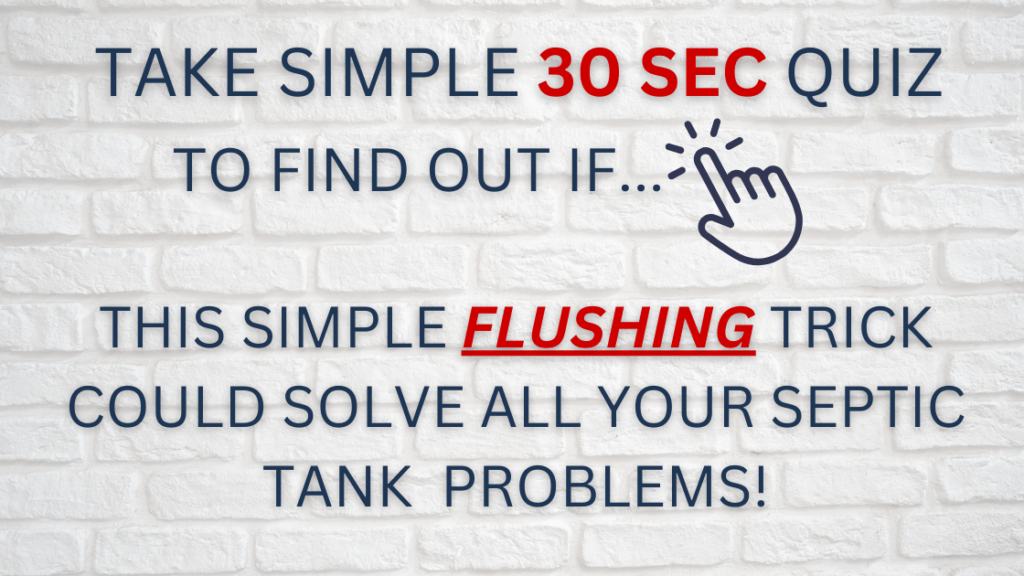
#3 Cascade Advanced Power Liquid Machine Dishwasher Detergent
- Powers Away 24-Hour Stuck on Food
- Item Package Length: 9.804cm
- Item Package Width: 18.211cm
- Item Package Height: 30.607cm
Prices pulled from the Amazon Product Advertising API on:
Product prices and availability are accurate as of the date/time indicated and are subject to change. Any price and availability information displayed on [relevant Amazon Site(s), as applicable] at the time of purchase will apply to the purchase of this product.
Cascade Advanced Power Dishwasher Gel is an effective and bio-friendly formulation that’s so highly concentrated, you get a lot of dishes cleaned with every bottle. It powers away food residue that’s been stuck even for as long as 24 hours. It works great even with old model dishwashers.
PRO: Cascade Advanced Power’s liquid formulation makes it easy to use and leaves dishes significantly cleaner.
CON: Here’s another pro that’s also its con: its liquid form could be allowing it to stick to the washing machine’s parts and potentially clog the dispenser. This requires more frequent cleaning for the dishwasher.
#4 Ecover Automatic Dishwasher Soap Tablets
- Powers away stuck on food & gets dishes sparkling clean
Prices pulled from the Amazon Product Advertising API on:
Product prices and availability are accurate as of the date/time indicated and are subject to change. Any price and availability information displayed on [relevant Amazon Site(s), as applicable] at the time of purchase will apply to the purchase of this product.
Ecover Automatic Dishwasher Soap Tablets comes with 25 pre-packed tabs filled with powerful dish soap that’s really effective in cleaning your dishes. Each tab is made with plant-based ingredients and minerals that help keep your dishes clean, without clogging up your septic system. Ecover’s formulation is phosphate-free and biodegradable, making it totally safe for the environment.
PRO: Ecover Automatic Dishwasher Soap Tablets does not contain harsh chemicals, such as chlorine. This is an advantage because chlorine and chemicals are often left as residue on your glassware. Ecover does not test any of their products on animals, making it a cruelty-free and vegan-friendly option.
CON: The pods are covered with foil, rather than thin plastic, which means you need to unwrap the tablets before putting them into your washer. The thin plastic on pods will disintegrate in the washer, but the outer foil will not. Some users are also not too keen on the product’s citrus scent.
#5 Lemi Shine Booster Dishwasher Detergent
- POWERFUL CITRIC EXTRACTS FOR THAT EXTRA BOOST: This is a 3-pack of our brand new 12 oz Booster Additive to be used in conjunction with dishwasher detergent to better clean dishes and give them a sparkling finish. Try Lemi Shine Auto Dish Detergent Pods
- TOUGH ON STAINS NATURALLY: Our dishwashing booster contains natural ingredients, powerful citric extracts that remove stains, hard water, film, lime, calcium, iron, and other mineral deposits.
- PH BALANCE OPTIMIZATION: Use Dish Detergent Booster for optimizing your dishwashers cleaning ability by balancing the PH caused by hard water.
- SAFE & TESTED: Our products are UL Tested and the results speak for themselves, our products perform better than any other brand on the market, and all-natural. Lemi Shine Booster is biodegradable, phosphate-free, non-toxic, and Septic system safe when used as directed.
- CLEANS AND DEODORIZES: Cleans, Deodorizes, and optimizes all dishwashers and works in all auto dish and dishwasher systems. Natural and Safe for your pets and children when used as directed.
Prices pulled from the Amazon Product Advertising API on:
Product prices and availability are accurate as of the date/time indicated and are subject to change. Any price and availability information displayed on [relevant Amazon Site(s), as applicable] at the time of purchase will apply to the purchase of this product.
Lemi Shine Booster dishwasher detergent is made with natural ingredients and powerful citrus extracts that remove stains, hard water spots, film, lime, calcium, iron and other mineral deposits. This is an additive to be used together with your favorite dishwasher detergent to better clean your dishes and give them a sparkling finish. This optimizes your dishwasher’s cleaning ability by balancing the pH due to hard water. It is all-natural, biodegradable, phosphate-free, non-toxic, and safe for septic systems when used as directed. Lemi Shine Dish Detergent Booster is EPA Safer Choice-certified, so you know it’s safe to use and is friendly to the environment.
PRO: Lemi Shine Booster cleans, deodorizes, and is optimal in all dishwasher types and works in all auto dish and dishwasher systems. A little goes a long way.
CON: A few users have expressed disappointment from ending up with dishes with white film or residue after washing cycles. Some find it pricier than the standard in dishwashing cleaners.
#6 Sun and Earth Natural Concentrated Dishwashing Liquid, Unscented
- RICH LATHER: Rejoice in doing dishes with this dish soap which offers a rich lather while being tough on even the dirtiest of plates.
- NO PERFUMES OR DYES: making it an eco-friendly alternative to other harsh soaps.
- UNSCENTED FREE AND CLEAR: Plant-Based Ingredients.
- PLANT BASED INGREDIENTS: They contain no petroleum- based ingredients, bleach, chlorine, ammonia, dyes, phosphates or perfumes.
- Made in the USA
Prices pulled from the Amazon Product Advertising API on:
Product prices and availability are accurate as of the date/time indicated and are subject to change. Any price and availability information displayed on [relevant Amazon Site(s), as applicable] at the time of purchase will apply to the purchase of this product.
This Natural Concentrated Dishwashing Liquid from Sun and Earth is a richly-foaming formula that’s tough on food and grease, yet gentle on hands. It is natural, non-toxic, biodegradable, phosphate-free. It is hypoallergenic and dermatologist-recommended, with no added dyes, perfumes or preservatives which are leading causes of skin irritation. It is environmentally-friendly and safe for family members of all skin types.
PRO: Allergy sufferers rejoice with this product. It’s so gentle on the skin that an afflicted user’s allergies heal even while using this product from Sun and Earth.
CON: Packaging may not be sturdy enough to withstand any degree of negligence during shipping/handling.
#7 Cascade Complete Dishwasher Pods, Actionpacs Dishwasher Detergent
- Tougher than baked-on food messes
- No pre-wash needed. Cleans 24-hour stuck-on food so well you can skip the pre-wash. This can save up to 15 gallons of water per dishwasher load!
- For best results, use with Cascade Rinse Aid and Dishwasher Cleaner
- No premeasuring needed: Cascade ActionPacs are convenient and easy to use. No finicky wrapping.
- Dissolves quickly to unleash cleaning power early in the cycle
Prices pulled from the Amazon Product Advertising API on:
Product prices and availability are accurate as of the date/time indicated and are subject to change. Any price and availability information displayed on [relevant Amazon Site(s), as applicable] at the time of purchase will apply to the purchase of this product.
Cascade ActionPacs dishwasher detergent powers away grease and residue, leaving you with sparkling dishes in easy-to-use pacs. It combines the scrubbing power of Cascade and the grease-fighting power of Dawn. Simply load your dishwasher, pop in an ActionPac, and you’re good to go.
PRO: Cascade Complete Dishwasher Pods effectively removes burnt-on food with no need to pre-wash. It removes limescale build-up, grease, and odors from your dishwasher, as well.
CON: Some users have found the pods to not dissolve correctly sometimes. The pods worked for the first few times, but seems to lose the ability over time. This might have to do with the plastic covering on the pods. The scent on this Cascade might be a bit overpowering to some users.
#8 Seventh Generation Ultra Power Plus Dishwasher Detergent Gel
- Blasts away stuck-on food and grease with dual action formula
- Features PlantTec with 50% more micro-scrubbing enzymes to power through residue
- 0% synthetic fragrances, dyes, chlorine bleach, or phosphates
- Leaves dishes sparkling clean, no pre-rinse required
- Septic Safe
Prices pulled from the Amazon Product Advertising API on:
Product prices and availability are accurate as of the date/time indicated and are subject to change. Any price and availability information displayed on [relevant Amazon Site(s), as applicable] at the time of purchase will apply to the purchase of this product.
Seventh Generation’s Ultra Power Plus Dishwasher Detergent Gel helps to really get rid of stuck-on food and grease. Made with a dual-action formula that has micro-scrubbing enzymes, it can cut through even the toughest residue. There are no phosphates, fragrances, dyes, bleach or other harsh chemicals. Guaranteed safe for septic systems.
PRO: This formula from Seventh Generation gets dishes a lot cleaner than many of the other dishwashers on the market can. This Ultra Power Plus Dishwasher Detergent Gel from Seventh Generation breaks down well, even in areas that have hard water. It is made with sustainable, plant-based ingredients, making it an environment-friendly choice.
CON: Some consumers have indicated that it left a film in their dishwasher. Although, this can be cleared up easily by using a dishwasher cleaner every few weeks. To some, the detergent may seem a bit on the thin side, casting some doubt on the potency of the product. However, this is not the case. Product consistency does not deter its effectiveness.
#9 Finish Quantum Max Powerball Dishwasher Detergent Tablets
- Quick dissolving Dishwasher Power Gel washes away residues for an amazing shine
- Pre-soaking Powerball scrubs away even 24-hour dried-on food
- Easy-to-use, pre-measured dishwasher pods with refreshing fresh scent
- Easy-to-use, pre-measured dishwasher tablets
- 64 Powerball dishwasher tabs = 64 wash loads
Prices pulled from the Amazon Product Advertising API on:
Product prices and availability are accurate as of the date/time indicated and are subject to change. Any price and availability information displayed on [relevant Amazon Site(s), as applicable] at the time of purchase will apply to the purchase of this product.
Finish Quantum Max Powerball cuts through grease, breaks it down and lifts it away. It works on burnt, dried-on food with no need to pre-soak or rinse. Its advanced powder with bleach formulation cleans tough stains from the likes of tea and coffee. Finish Quantum Max Powerball is recommended by more dishwasher brands worldwide.
PRO: It is formulated with Glass Protect Action that helps prevent glass corrosion and fights deposits. It is made with quick-dissolving Power Gel that effectively washes away residue.
CON: A few users have complained about product packaging. Upon opening the packaging, capsules were stuck together. And when the pods are separated, it may cause detergent fluid and granules to spill out. Some have also observed instances when the pod covering does not melt 100%, sometimes causing soapy dishes after the wash cycle. Some pods have been found stuck inside the bottom parts of the dishwasher.
#10 Method Smarty Dish Plus Dishwasher Detergent Packs
- Contains (1) resealable pouch with 45 individual packs of dishwasher soap inside
- Naturally derived dishwasher detergent packs
- Naturally derived, non toxic, mineral based
- Rinse aid action helps dishes, glasses and flatware keep their sparkle
- Removes 48 hour stuck on food
Prices pulled from the Amazon Product Advertising API on:
Product prices and availability are accurate as of the date/time indicated and are subject to change. Any price and availability information displayed on [relevant Amazon Site(s), as applicable] at the time of purchase will apply to the purchase of this product.
Method Smarty Dish Plus dishwasher detergent packs is a natural product made with mineral-based ingredients. It boasts of Power Green technology that helps to get rid of even the stickiest food residues, even with hard water. Bleach-free and biodegradable. The detergent packs are individually wrapped for ease of use.
PRO: Method’s Smarty Dish Plus Dishwasher Detergent Packs offers a triple-action cleaning power that works well in getting rid of tough grease and grime. It works well with both standard and HE dishwashers. Dissolves easily.
CON: It has been noted as leaving behind a white-colored residue on some dishes. This is possibly from putting the tablets into the cutlery bin rather than in the detergent slot in the washer. It’s unscented, so if you prefer a fresh scent on your dishwasher detergent, this may not be the top choice for you.
#11 Biokleen Automatic Dishwashing Liquid Detergent Gel
- Removes tough baked-on-food and grease without the use of toxic chemicals
- Your dishes, glassware and flatware will come out spotless and free of chemical taste and residue
- Grapefruit seed and orange peel extract
- Phosphate and chlorine free
- 3x more concentrated; Safe for high-efficiency dishwashers
Prices pulled from the Amazon Product Advertising API on:
Product prices and availability are accurate as of the date/time indicated and are subject to change. Any price and availability information displayed on [relevant Amazon Site(s), as applicable] at the time of purchase will apply to the purchase of this product.
Biokleen is a known brand leader in the eco-friendly cleaning products market. Biokleen’s Automatic Dishwashing Liquid Detergent Gel is safe to use in both standard and high-efficiency dishwashers. It is phosphate-free, does not contain chlorine, and other harsh chemicals. There’s also no added colors, fragrances or preservatives.
PRO: This line from Biokleen also has a powdered variant, but both are equally effective in getting out tough, stuck-on food and grease, thanks to the enzymes included in the formula. It is also made with natural citrus extracts that not only leave you with sparkling dishes, but also a fresh-smelling kitchen.
CON: If you live in an area with hard water, the product may leave a slight film on your dishes. A number of dissatisfied customers have noted that the gel is not powerful enough to remove all encrusted food residue.
Your Dishwasher and Your Septic System: What You Should Know
You might be wondering if a dishwasher’s water volume could overload and harm your septic system. Rest assured that the volume of water from home dishwashing machine use should not be a problem for a well-maintained septic system in good working condition. However, there are certain cases when you should avoid emptying your dishwasher discharge into the septic system. Consider the following factors:
- The capacity of your drainfield. Divert your dishwasher
discharge away if your drainfield (or leach field) has limited capacity to
absorb effluent. A small drainfield may not be built to process beyond the
typical water usage (bath and kitchen) of a small family. - A failing drainfield. If your drainfield is
showing early signs of failure, such as effluent coming to the surface of the
property or backing up into the home or building. Whatever the case is, you should
get your system inspected and repaired promptly.
One option you can look into is to have a separate greywater system or dry well installed, designed to receive dishwasher discharge. If you are considering this step, you may want to divert your clothes washer to this common dry well, as well. For certain properties with very limited septic capacity, a larger dry well may be installed to handle additional greywater from other building fixtures such as the sinks and showers, too.
Earlier, we’ve discussed how normal levels of diluted dishwasher detergent may be harmless to the bacteria and enzymes in your septic system. But because a lot of dishwasher detergents rely on amounts of phosphates and surfactants to clean dishes, these substances will find their way to both ground and surface water, potentially contaminating them.
Liquid or Powdered Dishwasher Detergent: Which is Best For Septic Systems?
As an owner of a dishwashing machine, you would know that dishwasher detergents mainly come in these two forms: liquid and powdered. The choice of dishwasher detergent is typically through personal preference, but there are advantages to knowing the specific differences between these two forms of the cleaning agent.
This may come as a surprise to some, but liquid dishwasher detergents are NOT highly recommended by dishwasher experts, even those in “tablet”, “capsule”, “pac”, or other conveniently-wrapped detergent products available in the market. Liquids can stick on delicate dishwasher parts and impede with normal mechanical function.
This might also apply to liquid rinse aid products that some have taken to adding (there’s a rinse aid area inside the dishwashing machine). How it works is a small amount of the rinse aid is released during the final hot water cycle. This is believed to limit spots from forming on the dishes.
Dishwasher detergents in powdered form are typically the most economical among detergent options. Powder detergent cleans delicate dishware more efficiently than most liquid dishwasher detergents.
This irony poses a bit of a dilemma, though. Liquid detergents, on the other hand, are much kinder to septic systems than are powdered detergents. Liquid detergents pose less risk of soil clogging within your septic system. A lot of store-bought powdered detergents may include filler substances that are not entirely organic or biodegradable.
A much better way to go about it would be to rely on homemade options. Distilled white vinegar can be used as a rinse aid instead of a store-bought brand. You can also make your own dishwasher detergent by mixing washing soda, borax, pure salt, and citric acid. More on this below.
DIY Dishwasher Detergent Recipe
You may want to try a DIY-ed dishwasher detergent. The standard recipe for this is:
- 2 cups of washing soda + 1 cup of borax
Or, as an alternative:
- 1 cup borax + 1 cup washing soda + ½ cup salt + ½ cup citric acid (or lemon juice, though this is less concentrated)
However, you may know that though borax was a common household item in the earlier years and considered to be an effective cleaning agent, the safety of borax, especially its salts and precursors, has recently come under review. Health screening assessments now recommend minimizing exposure to borax. You may substitute borax with food-grade hydrogen peroxide (3%) solution, a mixture of water and white vinegar (in equal parts), lemon juice, and salt.
In the year 2010, at least 17 states adopted laws that required a substantial reduction in the level of phosphates in detergents. Nowadays, most dishwasher detergents you may buy at your local outlets are likely to be low in phosphorous. There is even a push underway to get phosphates taken out of dishwashing detergent altogether. This is because these products end up in local rivers and lakes, harming our marine ecosystems. And whether you decide on liquid over powdered (or vice versa), always go for septic system-friendly products, which are characteristically natural and biodegradable. As with everything else, after all, anything in excess is detrimental. In sum, if you wish to minimize your environmental pollutants “footprint”, look into just purchasing products listed by the EPA’s “Design for the Environment Program”. Using phosphate-free dishwashing detergent is not only good for your septic system, but it helps you do your part in keeping our environment safe and healthy.
If you want information on the best dishwashers for septic systems read this.
Resources Used
https://inspectapedia.com/septic/Dishwasher_Impact_on_Septic_System.php
https://www.hunker.com/13408564/the-best-detergent-cleaning-product-for-septic-tanks
https://www.hunker.com/12263405/liquid-vs-powder-dishwasher-detergent
https://www.thespruce.com/how-often-to-clean-appliances-1908622

